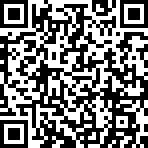| ผู้เขียน | Wirot Poonsuwan |
|---|
Medicinal Cannabis Dispensary to Become Legal by End of 2020
To ease the economic impact of the COVID-19 pandemic, the Food and Drug Administration has taken the initiative of producing a draft notification of the health ministry allowing for the production and sale of non-narcotic cannabis and hemp herbal products to be sold at retail medicinal dispensaries that would be set up following the signing into law of the notification, anticipated by the end of this year.
The notification will immediately enable farmer groups supported by state agencies, with existing licenses to grow cannabis plants, to seek another license to manufacture cannabis-based herbal products for medical purposes as well as a license to sell them to the general public.
Simultaneously, the private sector will be permitted by the latest regulation to apply for a sale license at a fast clip to sell cannabis herbal products, while private production licensing awaits an amendment to the Narcotics Act of 1979, currently under scrutiny at the Council of State after being approved by the Cabinet.
Cannabis Dispensary Licensing
Under the notification to be released under the Herbal Products Act of 2019, a legal entity or an individual can apply for a sale license and set up a dispensary as a sales outlet to sell herbal products derived from cannabis (Cannabis sativa L.) or hemp (Cannabis sativa L. subsp. sativa).
If the licensee is an individual, he must not be diagnosed with illnesses, such as narcotics addiction or alcoholism—patently, an illicit drug addiction is regarded as an illness under the notification.
Similar to a pharmacy in general, there must always be 1 individual acting as the operator in charge of the dispensary, who has also shown a clean bill of health. The operator has to be professionally licensed as a Thai traditional doctor, Thai traditional pharmacist, Applied Thai traditional doctor, or a licensed modern pharmacist.
Rules and methods the licensee and the operator must comply with include keeping the products at the right temperature and avoiding sunlight to ensure quality; a system must be installed to check and root out products that have expired.
Interweaving between Non-Narcotic Notification and Narcotics Act
This new notification under the Herbal Products Act reflects the cannabis legislation to amend the Narcotics Act that has reached the Council of State for review which would lift the 2019-2024 5-year ban on private production to allow companies and individual entrepreneurs to grow and manufacture medicinal herbal cannabis and hemp independently without having to rely on state agencies.
The only difference: the notification is aimed at non-narcotics leaving the normal narcotics to be covered by the Narcotics Act.
Raw materials used in production: leaves, flowers, tops, fruits and stems of the plant and extracts from those parts of the plant continue to be considered narcotic under the Narcotics Act.
The private sector would be unable to touch these narcotic raw materials until the legislative process to amend the Narcotics Act through Parliament is completed, perhaps in 2021. And therefore, any private manufacturing license to make cannabis herbal products under the notification will have to wait.
Understandably to protect the local economy, the notification continues to uphold the 5-year ban on imports.
Safety and Control
What’s special to the cannabis and hemp dispensary is the control system.
As a safety measure, both the sale licensee and the operator of the dispensary must monitor and promptly report to the authorities any side effects of the drug use.
A purchase account must be maintained and signed personally by the dispensary operator, detailing each purchase, showing the production batch number, name of supplier, name and volume of the product, date of purchase, etc. in the form attached to the notification. The account must be kept at least 3 years from the date of purchase.
A sales account must similarly be maintained using the prescribed form.
Name and Address of Buyer Declared
An inquiry into the medical history of the customer is expected to be made by the operator of the dispensary every time a customer buys the medication to see to it that the patient receives the right treatment for their illness.
To trace the sale of every unit of cannabis and hemp traditional medicine all the way through from manufacturers, to suppliers, dispensaries, and end users, a sales report must also be filed with the authorities every 4 months, breaking it down into each sale showing the full name and contact address of the purchaser and amount and size sold, as well as the remaining units in stock after each such sale.
The sale licensee and the operator are mandated to jointly sign the sales report.
For anyone who has doubts in their mind, the dispensary will be restricted to medical cannabis and hemp herbs only and cannot dispense recreational marijuana.
Wirot Poonsuwan is the Senior Counsel and Head of Special Projects at Blumenthal Richter & Sumet in Bangkok and can be reached at [email protected].










